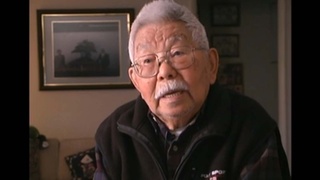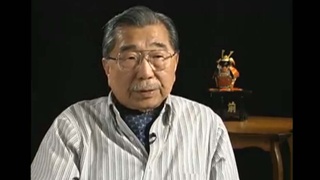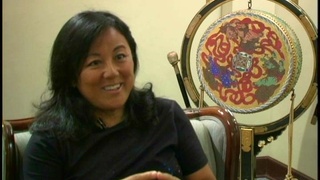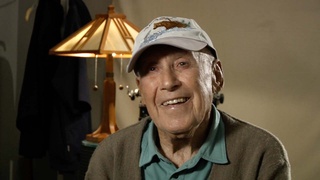Interviews
Relating to Hispanic immigrant families at detention center in Laredo, TX
But this Laredo trip was the closest I felt that I could feel what my mom, my sisters went through. Just hearing their voices in Spanish, there was an interpreter there. They were saying, oh my god, their story is nothing compared to ours. We were, they were detained for six months to a year, we were there for three and a half years, they don't think there's any comparison.
But for them to tell their story in Spanish, I could see my sister in particular, Kiyo is the second oldest now, my oldest sister married right out of camp, so she went to Los Angeles. So my older sister was kind of in charge, and she did a lot. And she only spoke Spanish and Japanese, so her English was this heavy accent, Spanish accent. We always had fun with her because of that. But when I heard the ladies speaking, one lady from Guatemala talked about her four kids, and the oldest was eighteen and her daughter was eighteen, and they took her away. This is now happening today, and she couldn't figure out why, and later they told her, "Well, she's eighteen so she can take care of herself." There's no law that does that. Everything's, they're breaking the law regularly, no different than what they did with us. And when they were telling their story they were breaking down and crying, the interpreter was crying, and it was a moment that I could feel a little bit of what my parents and my sister went through.
I was really torn. That's when I said, oh god, that speaking, hearing the Spanish, you just, right away, I could sense what my sister or my mom went through, because that's all they spoke, or Japanese.
Date: September 20, 2019
Location: California, US
Interviewer: Tom Ikeda and Yoko Nishimura
Contributed by: Watase Media Arts Center, Japanese American National Museum and Denshō: The Japanese American Legacy Project.
Explore More Videos

Documenting family history for future generations
(b. 1934) Writer

Different learning style in Japan and the United States
(1918-2023) Nisei Japanese kabuki dancer


Being an American soldier and an "enemy alien"
(1923-2011) Lawyer, MIS veteran, founder of Francis and Sarah Sogi Foundation


Thoughts on relationship between Japanese Peruvians and Japanese Americans at Crystal City, Texas
(1937 - 2021) Teacher

Father interrogated by FBI, but not taken away
(1925 - 2018) Nisei educator from Hawai‘i

The political effects on Nikkei during the war (Spanish)
(b. 1950) Nisei Chilean, Businessman

Avoiding the Japanese military
(1914-2004) Nisei Bonsai master in the United States


A Dutiful Son
(1918-2012) Fought the constitutionality of Executive Order 9066.

The myth of the sacrifice of immigrants (Spanish)
(b. 1962) Peruvian Poet, Okinawan descendant

Reception of Hamako by family
(1916 - 2013) Member of the U.S. Military Intelligence Service

Memories of Poston
(b. 1930) Half Japanese and grew up in both Japan and the United States.

Arriving at Poston
(b. 1930) Half Japanese and grew up in both Japan and the United States.
